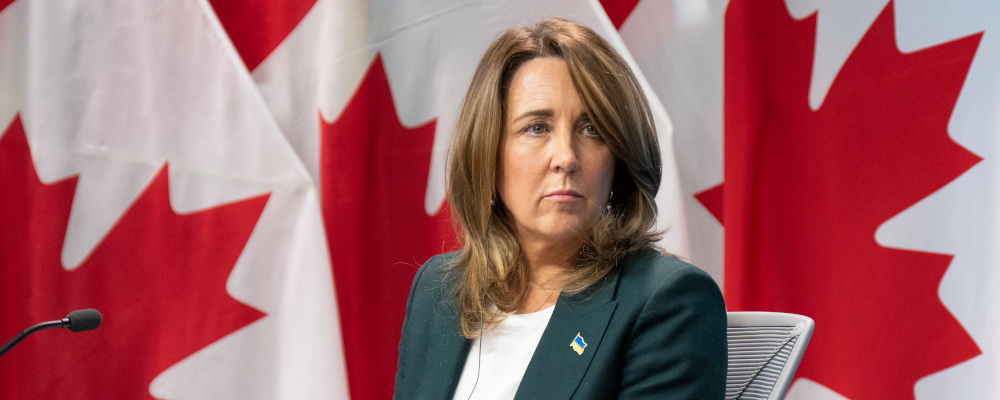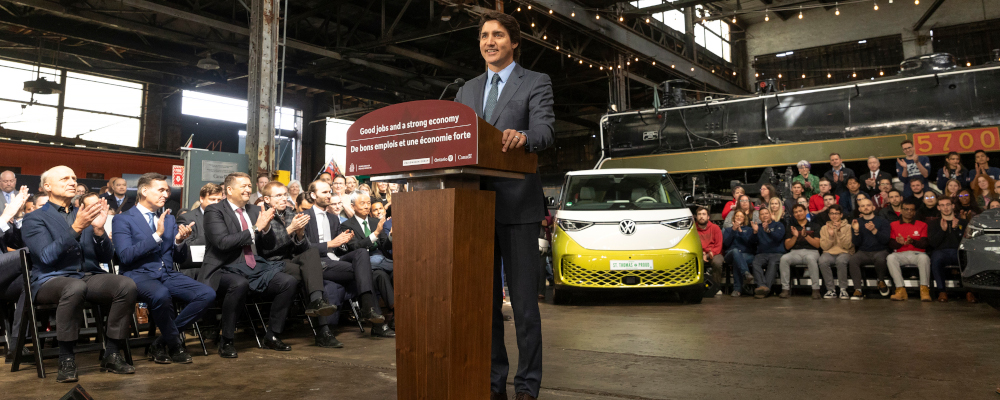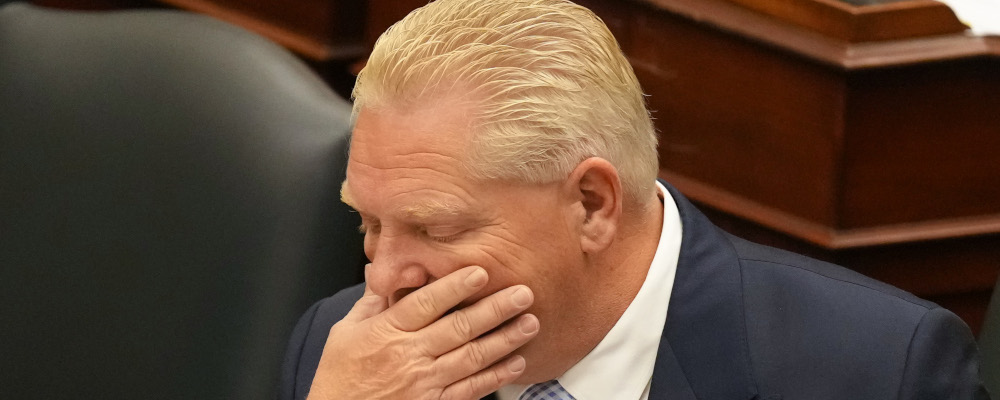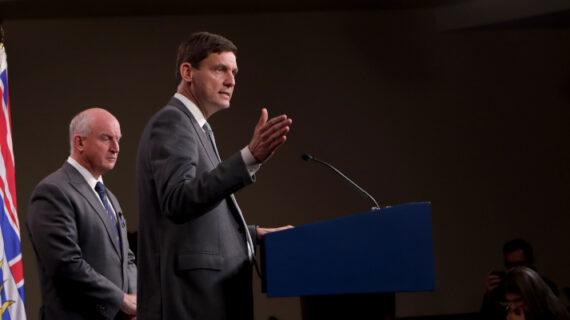In The Weekly Wrap Sean Speer, our editor at large, analyses exclusively for Hub subscribers the big stories shaping politics, policy, and the economy in the week that was.
Ontario’s 2024 budget is a turning point for conservatives and Doug Ford
Conservatives have given the Ford government the benefit of the doubt since it was first elected in 2018. They were prepared early in its first term to overlook reversals on key policies like de-regulation or social assistance reform. They voted for its re-election even though its COVID policies were some of the most draconian and unsensible in the Western world. They accepted that the small-ball populism was the transaction cost of a populist premier. They stayed quiet in the face of the petty corruption evident in the Greenbelt scandal. They’ve even tolerated the sustained lack of progress on the province’s poor public finances on the grounds that the pandemic had disrupted the government’s fiscal efforts.
The past week, however, feels like a turning point for the relationship between conservatives and the Ford government. Eventually one needs to come to terms with the realization that nothing different or better is coming. Conservatives have understandably reached that point.

The first sign was the housing file, where the Ford government has talked the talk but consistently failed to walk the walk. That housing starts in the province are not only far from the government’s ambitious targets but have actually fallen year-over-year can only be interpreted as evidence that the government isn’t serious about addressing housing affordability. The premier’s recent opposition to fourplexes, which ought to be low-hanging fruit in a new YIMBY politics, has reinforced this point. The Hub recently published Progressive Conservative supporter Matt Spoke on the government’s disappointing housing record. As he rightly put it: “[the premier has] ultimately refused to go beyond words.”
This week’s budget is the same story. That the provincial deficit is moving in the wrong direction effectively amounts to the Ford government conceding any semblance of fiscal reform. The argument that the real problem is too few revenues fails to reckon with the fact that Ford’s government is spending more than the previous Wynne government. It’s no longer the case that the former’s fiscal record is no better than the latter’s. It’s now clearly worse. Ford’s fiscal legacy will be to have overseen a further deterioration of the province’s public finances.
For me, however, the Ford government’s biggest failing isn’t what it has done. It’s what it hasn’t done. This is a government defined by opportunity costs. It was elected in 2018 with high public awareness of the economic and fiscal challenges facing the province and considerable support for ambitious reform. Its political opposition was in disarray. Its subsequent re-election only strengthened the conditions for policy ambition. Yet nearly six years into its time in office, nothing has changed.
The province’s education system is shot through with left-wing identity politics and still producing mediocre results. Its health-care system is collapsing under the pathologies of the single-payer model. Social assistance continues to trap people in joblessness and state dependency. Its regulatory system still stands in the way of investment and much-needed projects. Its public debt is among the highest sub-sovereign debt loads in the world. Its persistently high tax rates are deterring entrepreneurship, investment, and job creation. Crime is on the rise in its major cities. None of these challenges have improved and many have worsened during Ford’s time in office.
The notion of conservatives continuing to support the government in the hope that it will somehow find a sense of purpose and execute a policy agenda that matches these challenges is a fool’s errand. This is who the Ford government is. Conservatives should give up hoping for something different.

The Bank of Canada has the right message—but its the wrong messenger
I’m saying it’s an emergency—it’s time to break glass.”
On Tuesday, Carolyn Rogers, the senior deputy governor of the Bank of Canada, delivered a rather extraordinary speech in Halifax in which she set her sights on Canada’s poor productivity record. Building off on a lot of The Hub’s regular commentary on the country’s stagnant and even declining GDP per capita (including our deteriorating comparison with the United States), her remarks painted a grim picture that she ultimately concluded represents a national emergency.
Rogers’s speech is a must-read for anyone interested in the secular stagnation that has beset the Canadian economy. It’s a clear-eyed and straightforward diagnosis of the problem and its underlying causes—namely, a lack of business investment in machinery, equipment, and intellectual property.
We cannot help but read it as a huge validation of the analysis and arguments that Trevor Tombe and others have documented at The Hub over the past several months. It’s a promising sign that after nearly a decade, the centre of gravity of economic policy thinking is shifting from a hyper-focus on distributional questions to renewed attention to economic growth and wealth creation.
Yet one cannot help but feel a bit uneasy about a central banker weighing into broader macroeconomic issues and using such politicized language. The prime minister and minister of finance would, in my view, have a good reason to be irritated about the speech—and not merely because it is critical of the government’s economic record.
We’ve spent the better part of the past two years insisting that politicians need to stick to their knitting when it comes to monetary policy even though in hindsight it’s clear that the Bank of Canada and other central banks around the world were too slow to recognize rising inflation in early 2022. It only seems fair therefore that central bankers ought to limit their own commentary about broader economic and fiscal policy.
It might be one thing to answer a question from a journalist or a member of parliament. It’s another to deliver a speech entitled “Time to break glass: Fixing Canada’s productivity problem.” (I had the same problem incidentally when former Bank governor Stephen Poloz was critical of the Harper government’s efforts to balance the budget.)
It’s telling that Rogers’ speech came with an accompanying Instagram video. It’s as if the Bank of Canada communications staff has decided that eight annual interest rate announcements aren’t enough for the social media age. Our central bankers apparently need more visibility and their own voices and brands.
After the past few years, however, most Canadians would likely be prepared to trade off knowing who the senior deputy governor is or what she thinks about productivity or any other number of issues in exchange for stable prices.
Simply put: one can wholeheartedly agree with Rogers’ message—Canada’s stagnant productivity growth and declining living standards are a national emergency—and still think she’s the wrong messenger.

Canada’s carbon tax debate is mostly missing the point
Carbon taxes were arguably the week’s main policy issue. It started with an open letter from a group of economists defending the carbon tax and ended with Alberta Premier Danielle Smith’s parliamentary committee appearance strongly opposing it.
The Hub was fully engaged in the debate. We published a popular article by economist Steven Ambler that was critical of the federal carbon tax. We also released an episode of Hub Dialogues with economist Chris Ragan (who helped draft the open letter) in favour of it. Both are highly informative and worth checking out.
The open letter’s conceptual defence of carbon taxes is fair enough. It makes a persuasive case that carbon taxes can reduce carbon emissions at a lower cost than other emission abatement policies such as sectoral regulations or corporate subsidies. There’s just one problem: it doesn’t quite work as a defence of the Trudeau government’s actual climate plan.
As I wrote in last week’s Weekly Wrap, new research by the Canadian Climate Institute estimates that the consumer carbon tax is only responsible for 8 or 9 percent of projected emissions reductions between now and 2030. The vast majority will come from either industrial pricing (which conservative provincial governments and presumably the federal Conservatives support) or the types of regulations and subsidies that carbon taxes are supposed to mostly substitute for.
The key point here is that the intellectual and political debate about carbon taxes seems like an odd combination of performative and detached from reality. We essentially have a political consensus in favour of climate policy agenda in which the consumer carbon tax plays a small or non-existent role in meeting our emissions target. Yet Prime Minister Justin Trudeau and Conservative leader Pierre Poilievre are subject to political incentives that cause them to overstate the differences in their respective climate policies.
Meanwhile, the academic economists have weighed into the debate in a way that affirms the prime minister’s rhetoric about carbon taxes but neglects his government’s actual policies. It’s hard otherwise to square their support for carbon taxes on efficiency grounds with the Trudeau government’s billions of dollars in centrally planned subsidies for electric vehicle production.
The letter’s signatories may lament where climate policy is headed but it seems increasingly clear that we’re going to end up with a durable bipartisan consensus around a mix of industrial pricing, regulations, and subsidies. Policy scholars would be prudent to think more about how to design such a regime in the most cost-effective way. Simon Fraser University economist Mark Jaccard has done some solid work along these lines.
One exception could be Ragan’s comments near the end of our podcast about whether, from a global point of view, Canada’s optimal policy would actually see its emissions rise in 2030 in order to boost its LNG exports and help other countries move off higher-emitting energy sources. It would represent a controversial decision that deviates from the bipartisan assumption that Canada must lower its national emissions. But it strikes me as a far more constructive and worthy debate than the contrived one that’s played out over the week.




